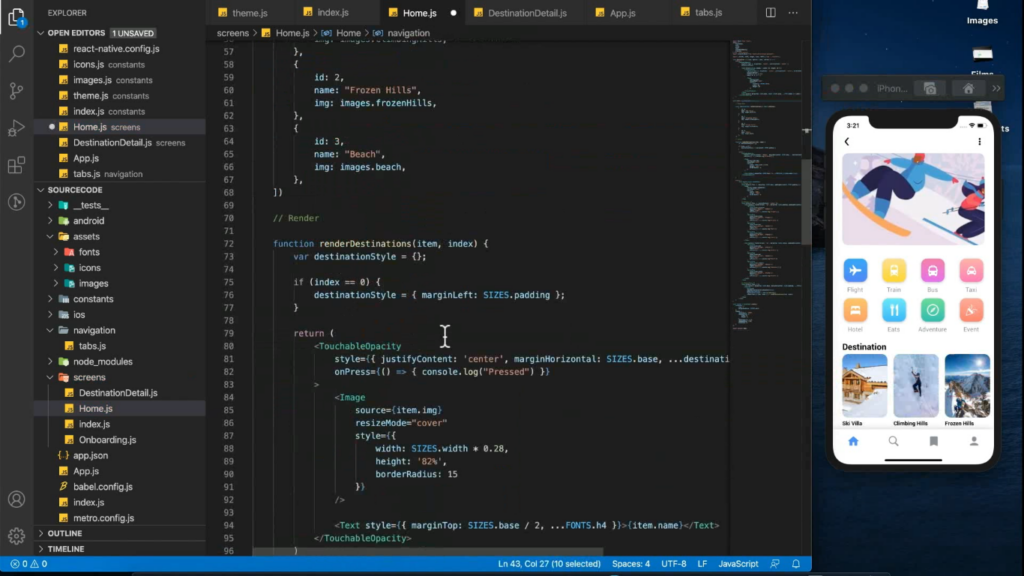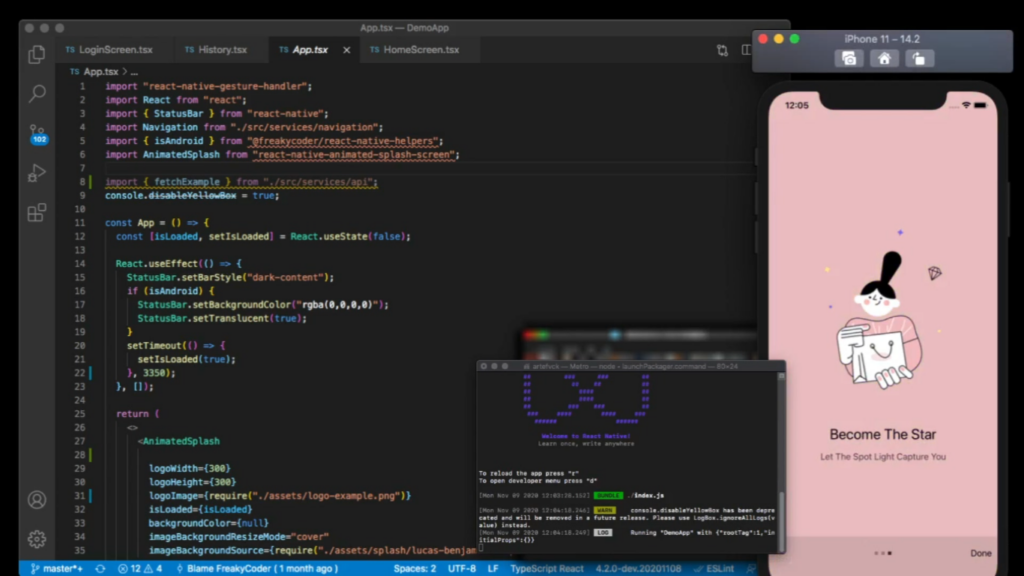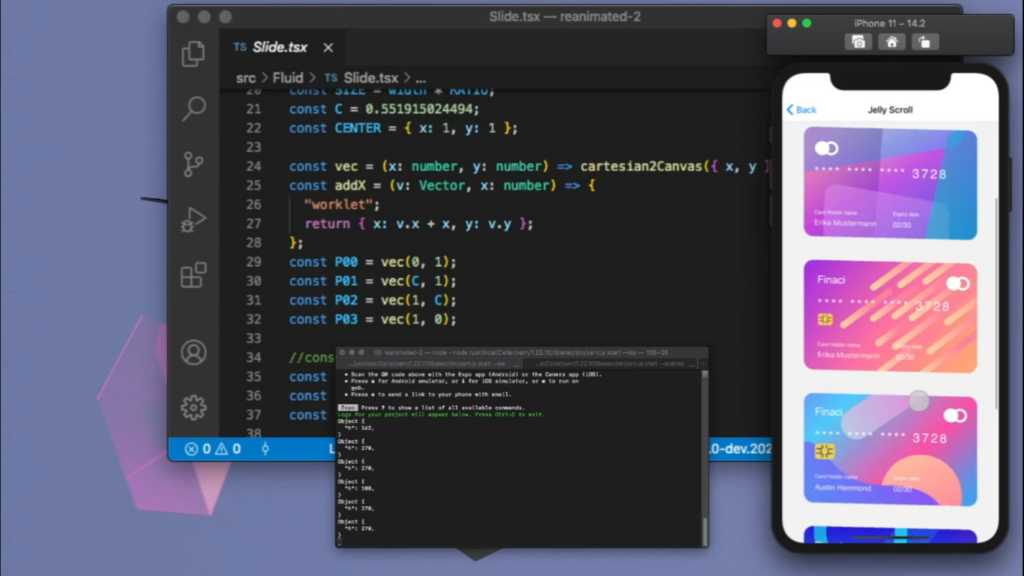Android Developer
Unlock your potential as an Android developer with our comprehensive course that covers advanced UI design, data persistence, and real-time networking. Gain hands-on experience through practical projects, empowering you to create robust, high-performance Android applications using the latest tools and best practices.
Course Program
What you'll learn
- Advanced skills in Android app development, including UI design, data binding, and architecture patterns.
- Techniques for integrating modern libraries and frameworks for efficient app functionality and user experience.
Course Program
Requirements
- Basic knowledge of Java or Kotlin programming languages.
- Familiarity with Android Studio and fundamental Android development concepts.
- Beginner Class: For students new to programming or with no prior experience.
- Advance Class: For students with programming basics or who have completed the beginner level.




Course content
- Introduction to Android Development
Overview of Android ecosystem, Android OS versions, and career paths. - Setting Up Android Development Environment
Installing Android Studio, configuring SDKs, and creating your first project. - Android Project Structure and Fundamentals
Understanding project structure, manifest file, and activity lifecycle. - Introduction to XML Layouts
Creating user interfaces using XML, understanding layouts and views. - User Interface Design with Views and Widgets
Working with buttons, text views, image views, and other UI components. - Handling User Input in Android
Capturing input from users via buttons, text fields, and touch events. - Activities and Intents
Navigating between activities using explicit and implicit intents. - Working with Fragments
Understanding fragments, fragment lifecycle, and managing multiple UI components. - Data Storage: SharedPreferences
Storing key-value pairs with SharedPreferences for simple data persistence. - Data Storage: SQLite Databases
Introduction to SQLite databases, creating tables, and performing CRUD operations. - RecyclerView and Adapters
Displaying lists of data using RecyclerView, custom adapters, and view holders. - Introduction to Networking: HTTP and APIs
Making network requests, handling JSON data, and using libraries like Retrofit. - Asynchronous Programming in Android
Using AsyncTask, Loaders, and the importance of background threads. - Working with Services
Creating background services, service lifecycle, and communicating with activities. - Introduction to Material Design
Implementing Material Design components and guidelines for modern Android apps. - Publishing Your First App on Google Play
Preparing the app for release, signing the APK, and publishing on Google Play Store.
- Introduction to Android Development
- Advanced UI Design: Custom Views and Animations
Creating custom views, working with animations, and transitions. - Advanced Layouts: ConstraintLayout and Flexbox
Mastering ConstraintLayout and Flexbox for responsive UI designs. - Data Binding in Android
Introduction to data binding, using ViewModel and LiveData to bind UI components. - Working with Jetpack Components
Overview of Jetpack libraries, using Navigation, Paging, and Room components. - Dependency Injection with Dagger or Hilt
Understanding dependency injection, setting up Dagger or Hilt in Android projects. - Advanced Networking: Retrofit and WebSockets
Deep dive into Retrofit for RESTful APIs and implementing real-time communication with WebSockets. - Advanced Data Persistence: Room Database
Using Room for efficient local data storage with SQLite abstraction. - MVVM Architecture in Android
Implementing Model-View-ViewModel (MVVM) architecture for scalable apps. - Working with Firebase in Android
Implementing Firebase Authentication, Realtime Database, and Cloud Firestore. - User Authentication: OAuth and Firebase Authentication
Integrating OAuth (Google, Facebook login) and Firebase for user authentication. - Push Notifications in Android
Implementing push notifications using Firebase Cloud Messaging (FCM). - Handling Background Tasks: WorkManager and JobScheduler
Using WorkManager and JobScheduler for scheduling background tasks. - Testing Android Apps: Unit and UI Testing
Writing unit tests, UI tests, and setting up Espresso for automated testing. - Android Security Best Practices
Securing Android apps, using ProGuard, encryption, and securing API keys. - Introduction to Jetpack Compose
Building declarative UIs with Jetpack Compose and understanding the Compose lifecycle. - Advanced App Deployment and Performance Optimization
Optimizing app performance, reducing APK size, and deploying updates efficiently.



Course Program
Capstone Project
Personal Expense Tracker: Create an app that allows users to track their expenses and categorize them, utilizing Room for local data storage and RecyclerView for displaying transactions.
Weather App: Develop a weather application that fetches real-time weather data from a public API, implementing Retrofit for networking and displaying the data using Jetpack Compose.
Recipe Sharing App: Build a recipe sharing platform where users can create, view, and save recipes, incorporating Firebase for user authentication and real-time database functionality.
Fitness Tracker: Design a fitness tracking app that allows users to log workouts, set goals, and visualize their progress with graphs, using ViewModel and LiveData for data management.
News Reader App: Implement a news reader application that fetches articles from a news API, featuring push notifications for breaking news and using WorkManager for background updates.
Course Program
Outcomes
- Proficiency in building scalable Android applications using MVVM architecture and Jetpack components.
- Ability to implement advanced features such as user authentication, real-time networking, and data persistence.
- Skills in optimizing app performance and securing applications following best practices.
